
Abuja: The Heartbeat of Nigeria
Abuja, the capital city of Nigeria, is a vibrant and modern metropolis nestled within the country's central region. Known for its impressive architecture, lush greenery, and cultural richness, Abuja offers a unique blend of urban sophistication and natural beauty. The city's layout is meticulously planned, with wide boulevards, serene parks, and iconic landmarks that tell stories of Nigeria's past and present. One of Abuja's most striking features is the Aso Rock, a massive rock formation that serves as a backdrop to the city. Nearby, the Nigerian Presidential Complex, National Assembly, and Supreme Court form the Three Arms Zone, an area of great political significance. The Nigerian National Mosque and the Nigerian National Christian Centre, both architectural marvels, highlight the city's religious diversity and harmony. For nature enthusiasts, Abuja's parks and gardens offer a tranquil escape from the urban hustle. Millennium Park, the largest public park in the city, is perfect for picnics and leisurely strolls. Jabi Lake, with its scenic views and recreational activities, is another popular spot for both locals and tourists. The city's vibrant markets, such as Wuse Market and Garki Market, provide a glimpse into everyday Nigerian life and are excellent places to shop for local crafts, textiles, and cuisine. Abuja also serves as a gateway to explore the rich cultural heritage of Nigeria. The city's numerous festivals, art galleries, and cultural centers celebrate the diverse traditions and artistic expressions of the Nigerian people. Whether you're exploring its modern infrastructure, enjoying its natural landscapes, or immersing yourself in its cultural vibrancy, Abuja promises an unforgettable experience.
Local tips in Abuja
- Visit during the dry season (November to March) for the most pleasant weather.
- Carry cash as many local markets and smaller vendors may not accept credit cards.
- Respect local customs and dress modestly, especially when visiting religious sites.
- Try local dishes like Jollof rice, Suya, and Pounded Yam for an authentic Nigerian culinary experience.
- Use registered taxis or ride-sharing apps for safe and reliable transportation.
Abuja: The Heartbeat of Nigeria
Abuja, the capital city of Nigeria, is a vibrant and modern metropolis nestled within the country's central region. Known for its impressive architecture, lush greenery, and cultural richness, Abuja offers a unique blend of urban sophistication and natural beauty. The city's layout is meticulously planned, with wide boulevards, serene parks, and iconic landmarks that tell stories of Nigeria's past and present. One of Abuja's most striking features is the Aso Rock, a massive rock formation that serves as a backdrop to the city. Nearby, the Nigerian Presidential Complex, National Assembly, and Supreme Court form the Three Arms Zone, an area of great political significance. The Nigerian National Mosque and the Nigerian National Christian Centre, both architectural marvels, highlight the city's religious diversity and harmony. For nature enthusiasts, Abuja's parks and gardens offer a tranquil escape from the urban hustle. Millennium Park, the largest public park in the city, is perfect for picnics and leisurely strolls. Jabi Lake, with its scenic views and recreational activities, is another popular spot for both locals and tourists. The city's vibrant markets, such as Wuse Market and Garki Market, provide a glimpse into everyday Nigerian life and are excellent places to shop for local crafts, textiles, and cuisine. Abuja also serves as a gateway to explore the rich cultural heritage of Nigeria. The city's numerous festivals, art galleries, and cultural centers celebrate the diverse traditions and artistic expressions of the Nigerian people. Whether you're exploring its modern infrastructure, enjoying its natural landscapes, or immersing yourself in its cultural vibrancy, Abuja promises an unforgettable experience.
When is the best time to go to Abuja?
Iconic landmarks you can’t miss
Ceddi Plaza
Discover the vibrant shopping, dining, and entertainment experience at Ceddi Plaza in Abuja, Nigeria, where culture and leisure meet.
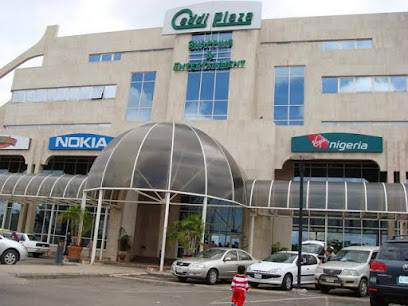
Silverbird Cinemas Abuja
Silverbird Cinemas Abuja: Your Gateway to the Latest Movies and Unforgettable Entertainment Experiences in the Heart of Nigeria's Capital.
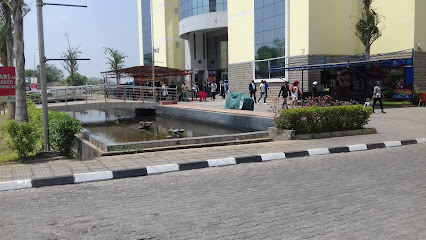
Magic Land
Discover the thrills of Magic Land, the ultimate amusement park in Kunkwaba, Nigeria, where adventure and fun await for all ages.
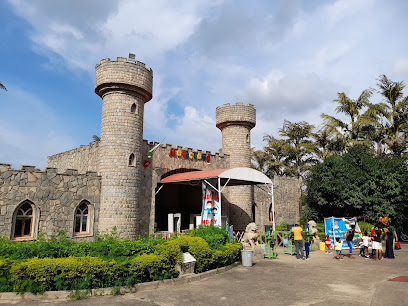
Abuja National Mosque
Discover the majestic Abuja National Mosque, a symbol of Nigeria's rich Islamic heritage and architectural beauty in the heart of Abuja.
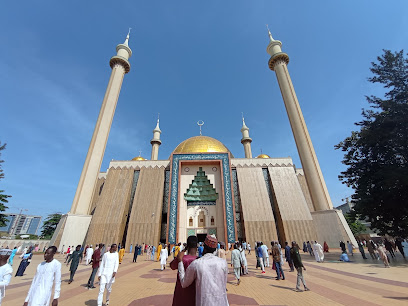
Millennium Park
Experience the lush landscapes and vibrant culture of Millennium Park, a serene escape in the heart of Abuja, Nigeria.
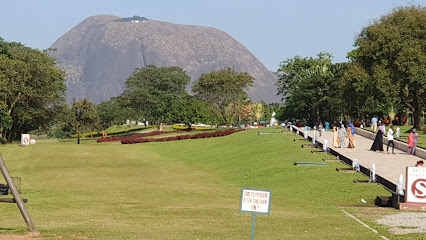
Eagle Square
Explore Eagle Square, Abuja's vibrant convention center, where culture, architecture, and history converge in Nigeria's capital city.
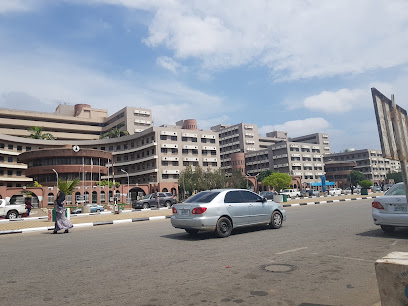
Old Parade Ground
Discover the Old Parade Ground in Abuja, a lively recreational space perfect for relaxation, family outings, and experiencing local culture.
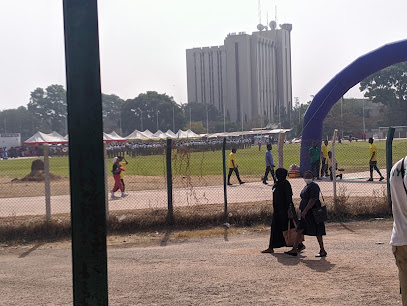
National Childrens Park & Zoo Abuja
Discover the enchanting National Children's Park & Zoo in Abuja, where wildlife encounters, educational experiences, and beautiful landscapes await families and tourists.
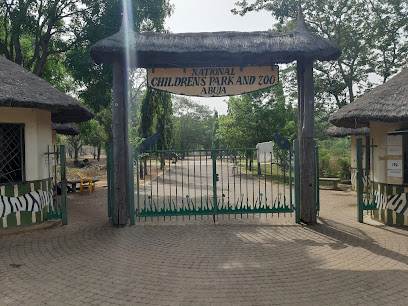
BMT African Garden
Experience tranquility at BMT African Garden in Abuja, where nature and culture come together for an unforgettable escape.
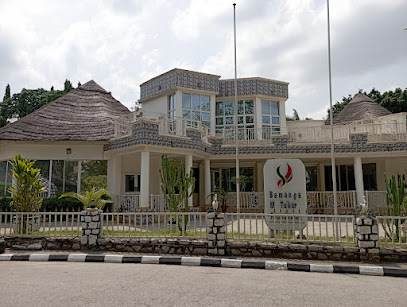
OJUELEGBA AMALAPOINT GARKI
Discover the rich culinary heritage of Nigeria at OJUELEGBA AMALAPOINT GARKI, a vibrant restaurant in the heart of Abuja's Garki district.
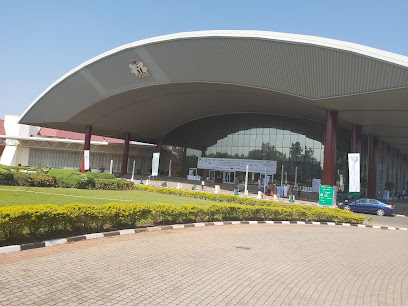
Nkoyo
Discover Nkoyo, where exquisite flavors meet a serene ambiance in the heart of Abuja, perfect for culinary enthusiasts and travelers alike.
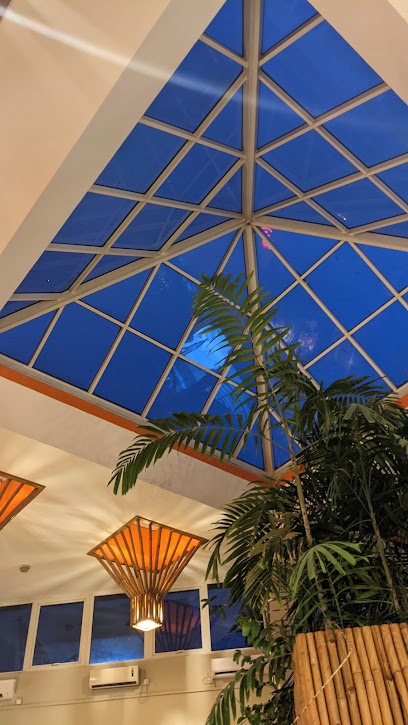
Maitama Amusement Park
Experience thrill and laughter at Maitama Amusement Park in Abuja, where fun and adventure await for all ages amidst beautiful surroundings.
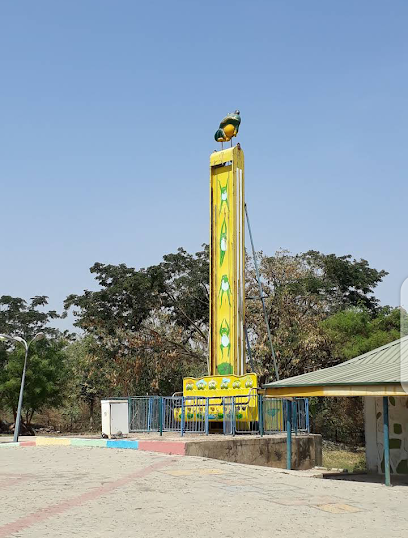
Central Park
Experience the natural beauty and recreational charm of Central Park, Abuja, where tranquility meets vibrant community life in Nigeria's capital.
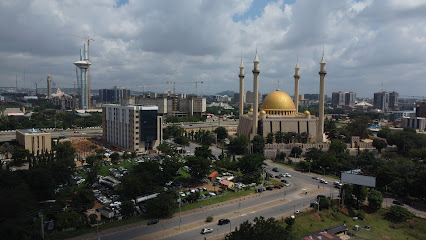
Abuja international conference center
Discover the Abuja International Conference Center, a premier venue in Nigeria's capital known for its modern architecture and vibrant event spaces.
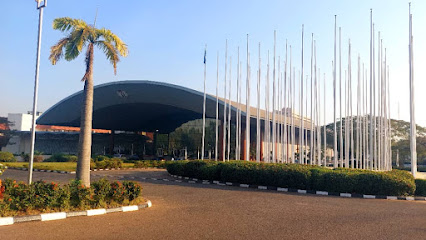
Shehu Musa Yar'Adua Foundation
Experience the rich cultural heritage of Nigeria at the Shehu Musa Yar'Adua Foundation, a hub for events, education, and community engagement in Abuja.
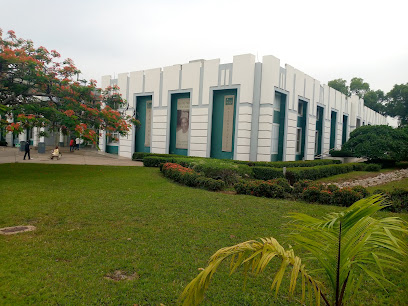
Unmissable attractions to see
City Park Abuja
Explore the lush landscapes and vibrant culture of City Park Abuja, the ultimate urban retreat in Nigeria's capital.
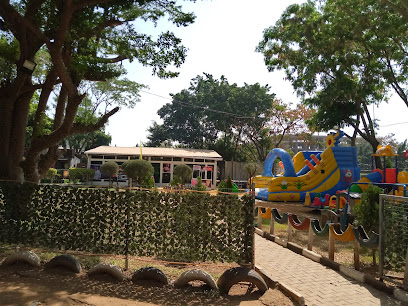
Magic Land
Dive into the fun at Magic Land, Kunkwaba's premier amusement park, featuring thrilling rides and enchanting attractions for all ages.
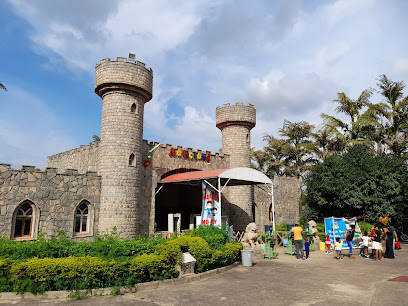
Abuja National Mosque
Discover the grandeur of the Abuja National Mosque, a stunning architectural masterpiece and a symbol of Nigeria's Islamic heritage in the heart of Abuja.
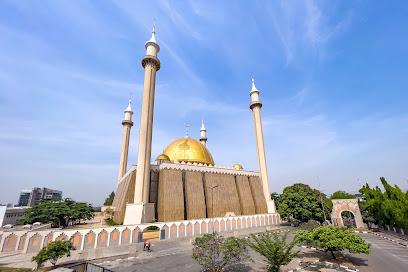
JD Leisure park
Experience the beauty and recreation of JD Leisure Park in Abuja, a perfect urban escape for relaxation, outdoor fun, and family gatherings.
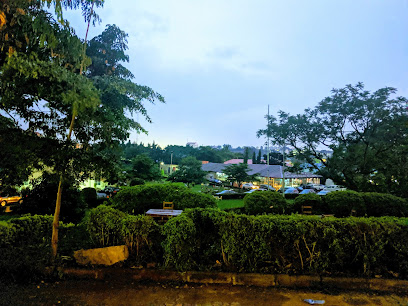
National Childrens Park & Zoo Abuja
Discover the enchanting National Children's Park & Zoo in Abuja, where wildlife encounters and family fun await in a serene natural setting.
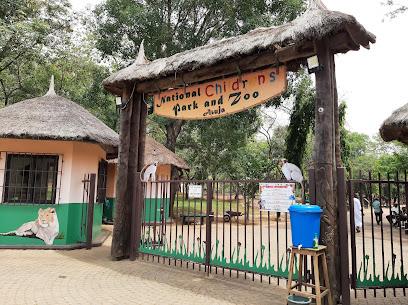
BMT African Garden
Explore the beauty of nature at BMT African Garden in Abuja, a serene escape featuring lush landscapes and a captivating zoo for the entire family.
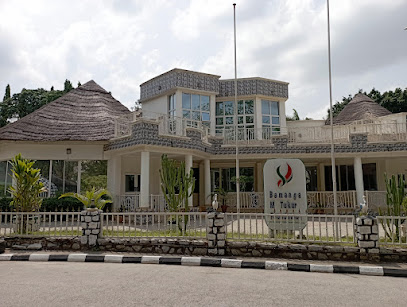
Maitama Amusement Park
Experience the excitement and joy of Maitama Amusement Park, Abuja's premier amusement destination with thrilling rides and family-friendly attractions.
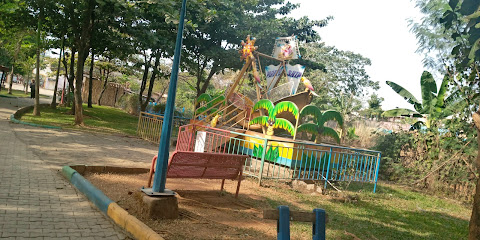
Central Park
Discover the lush greenery and vibrant atmosphere of Central Park, Abuja, a perfect oasis for relaxation and leisure activities.
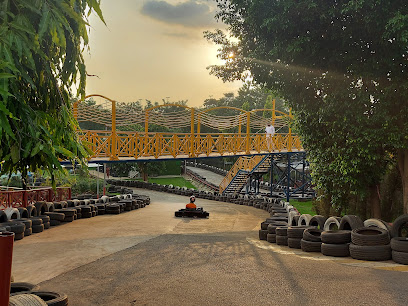
Tobix Recreational Park and Garden
Explore the lush landscapes of Tobix Recreational Park and Garden, a serene escape in Abuja, Nigeria, perfect for relaxation and outdoor fun.
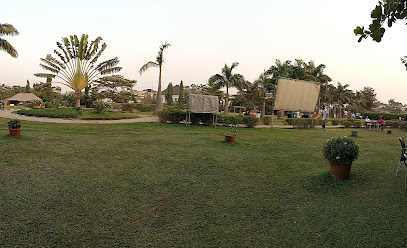
Jabi Park
Explore Jabi Park, Abuja's urban sanctuary, where serene lakes, lush gardens, and exciting outdoor activities await every visitor.
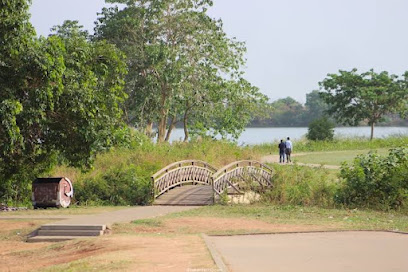
Jabi African Art And Craft Market
Explore the vibrant Jabi African Art and Craft Market in Abuja, where authentic Nigerian art, craft, and culture come to life.
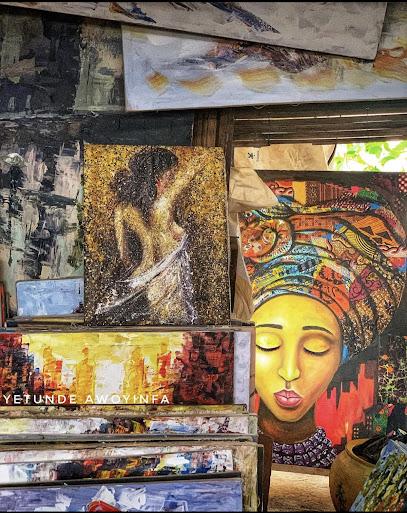
Unique World Garden
Experience the serenity of Unique World Garden, a perfect blend of nature and dining in the heart of Abuja, where relaxation meets local culture.
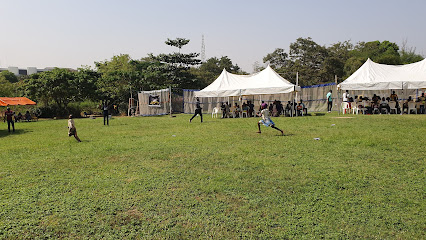
Splash Waterpark
Dive into adventure at Splash Waterpark, Kaura, where thrilling slides and family fun await in a vibrant, sun-soaked atmosphere.
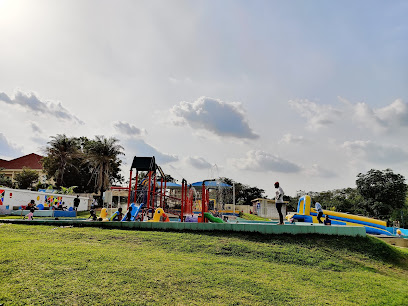
Thought Pyramid Art Centre, Abuja.
Experience the vibrant art scene of Abuja at Thought Pyramid Art Centre, a hub for creativity, culture, and education in Nigeria.
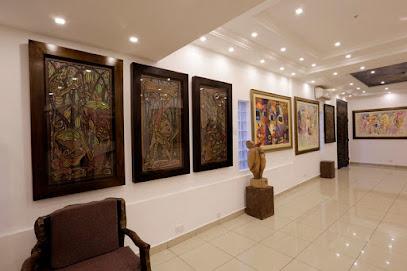
Nike Art Gallery And Workshop. Abuja
Explore the vibrant world of Nigerian art at Nike Art Gallery in Abuja, showcasing local talent and rich cultural heritage.
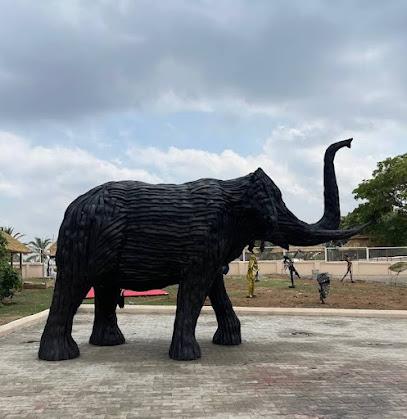
Essential places to dine
Jevinik Restaurant
Experience authentic West African cuisine at Jevinik Restaurant in Abuja - where tradition meets taste.
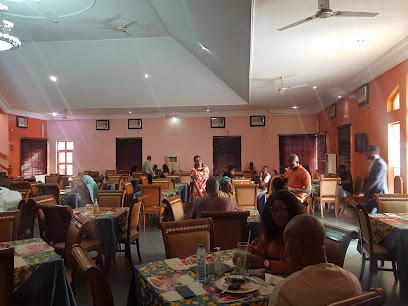
BluCabana Restaurant & Cafe
Experience diverse cuisines at BluCabana Restaurant & Cafe in Abuja - from Mediterranean to Mexican flavors all in one exquisite setting.
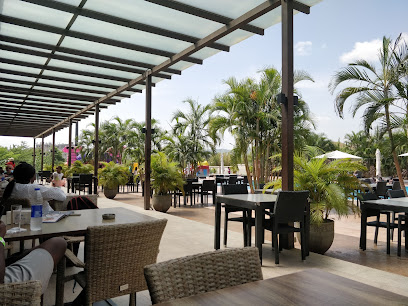
City View Restaurant
Discover exquisite flavors at City View Restaurant in Abuja – where local meets global in a stunning setting.
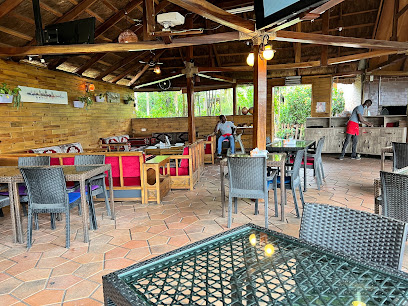
Cilantro Abuja
Experience authentic Indian cuisine at Cilantro Abuja - where vibrant flavors meet warm hospitality in Nigeria's capital.
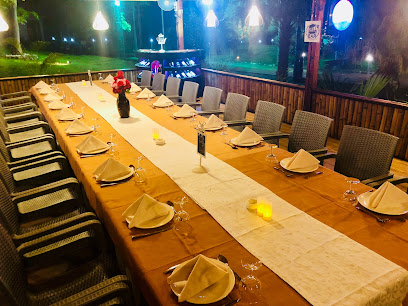
The Charcoal Grill
Experience the unique taste of grilling at The Charcoal Grill in Abuja - where fast food meets gourmet delight.
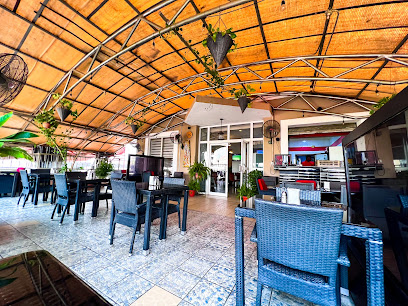
Village Chief Restaurant & Bar
Experience authentic Nigerian grill cuisine at Village Chief Restaurant & Bar in Abuja - a perfect blend of flavor and ambiance.
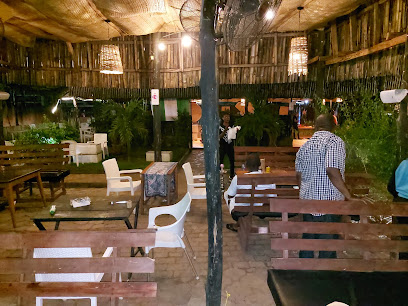
Clubhouse Restaurant & Gym
Discover Clubhouse Restaurant & Gym in Abuja - where delicious breakfasts meet fitness, perfect for families seeking fun and flavor.
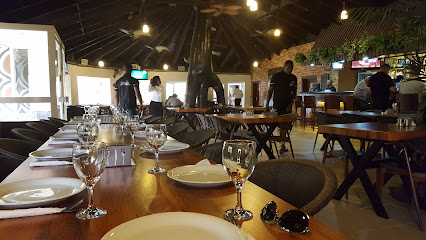
Lagos Bistro
Discover Lagos Bistro in Abuja - where local flavors meet international flair in a cozy setting perfect for all occasions.
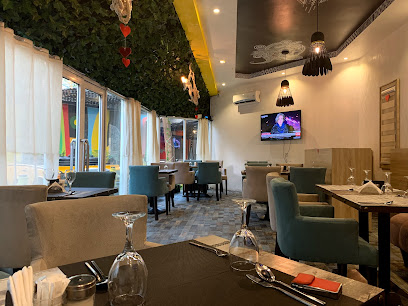
Nkoyo
Experience exquisite continental cuisine at Nkoyo in Abuja – where every meal is a celebration of flavor and ambiance.
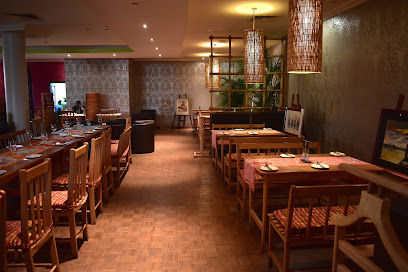
A Class Restaurant
Experience the best of fusion cuisine at A Class Restaurant in Abuja - where local flavors meet global inspiration.
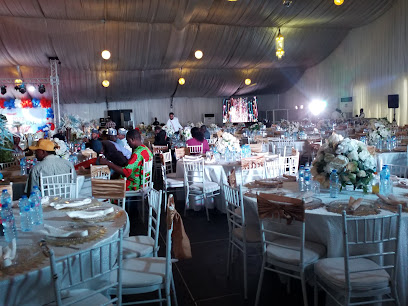
Duo Restaurant
Discover delightful continental and breakfast dishes at Duo Restaurant in Abuja - a must-visit culinary destination.
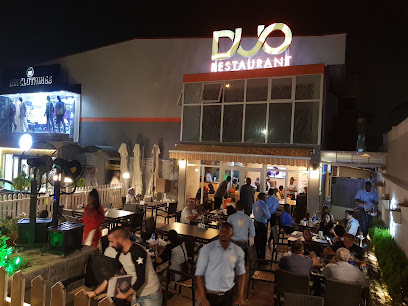
805 Restaurants Abuja
Discover delectable breakfasts and diverse culinary offerings at 805 Restaurants Abuja - an essential stop in Nigeria's capital city.
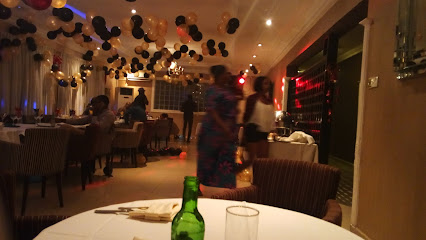
Cantina Restaurant
Discover the culinary delights at Cantina Restaurant in Abuja – where local flavors meet international cuisine in a vibrant setting.
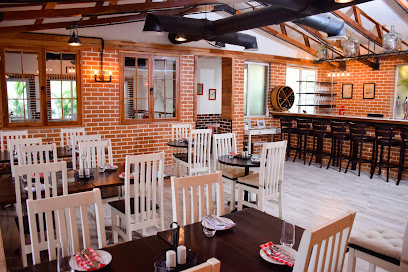
Vanilla Restaurant & Lounge
Discover Abuja's vibrant dining scene at Vanilla Restaurant & Lounge—where culinary excellence meets lively social atmosphere.
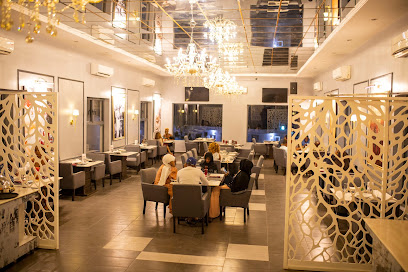
The Garden by L'Epicure
Discover the enchanting flavors of Nigeria and beyond at The Garden by L'Epicure in Abuja's serene oasis.
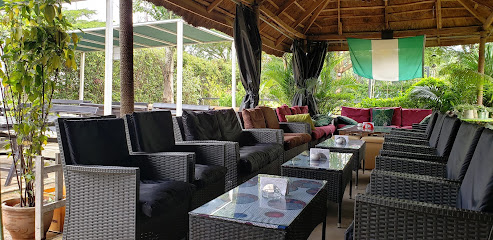
Markets, malls and hidden boutiques
Exclusive Stores
Explore a vibrant shopping haven in Abuja, featuring local crafts, groceries, and more at Exclusive Stores – perfect for tourists and locals alike.
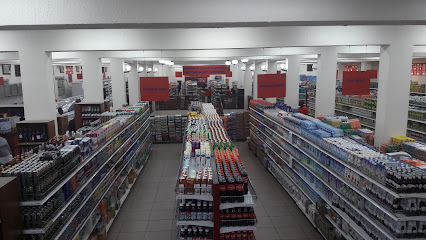
Celebrations
Explore Celebrations in Abuja for unique gifts, balloons, and more, perfect for every special occasion and celebration.
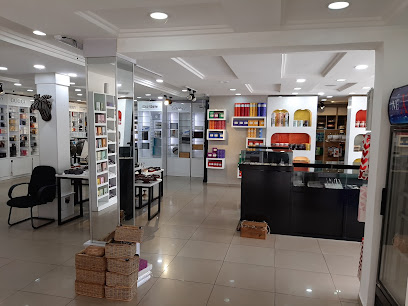
Paigeclothing
Discover the latest fashion trends at Paigeclothing, a must-visit clothing store in Abuja's vibrant Wuye Ultra Modern Market.
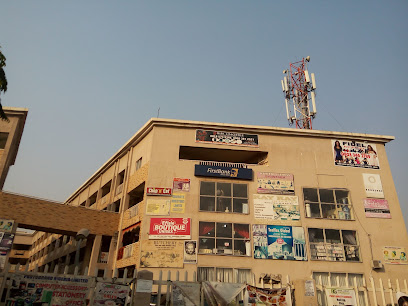
Razor Sharp Collection
Explore the unique fashion offerings at Razor Sharp Collection, a chic boutique in Abuja highlighting contemporary and traditional Nigerian styles.
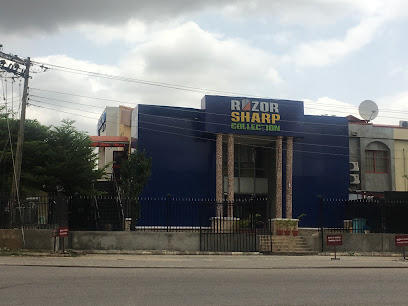
Acorns n Gold Boutiques
Explore the stylish and vibrant Acorns n Gold Boutiques in Abuja, offering a unique selection of women's clothing and accessories to elevate your wardrobe.
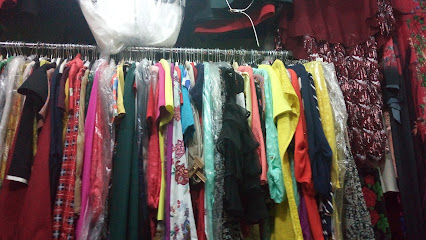
MISKAY
Discover the essence of Nigerian fashion at MISKAY, a boutique in Abuja offering contemporary styles and traditional attire for every occasion.
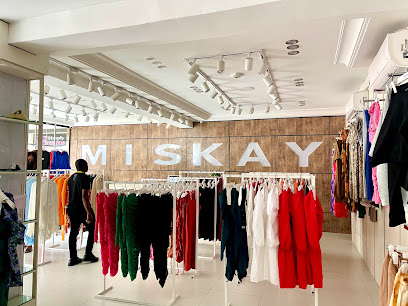
ACube Boutique
Explore the essence of Nigerian fashion at ACube Boutique in Abuja, where modern style meets traditional craftsmanship.
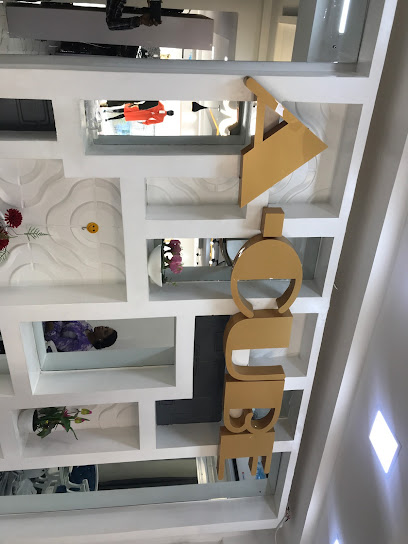
Tribe C
Explore Tribe C in Abuja for unique fashion finds and local craftsmanship, from stylish clothing to exquisite leather goods and more.
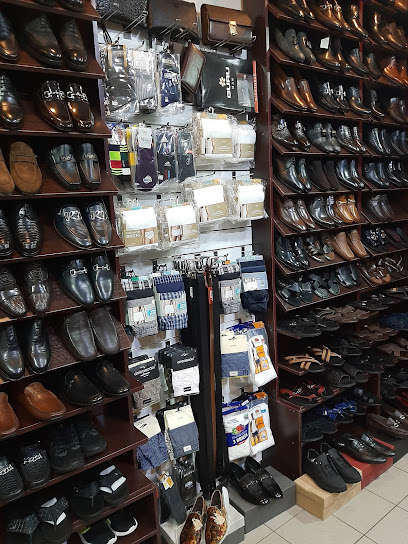
Bunu Souvenirs and Gifts
Discover the essence of Nigeria at Bunu Souvenirs and Gifts, where unique crafts and traditional artifacts await every traveler in Abuja.
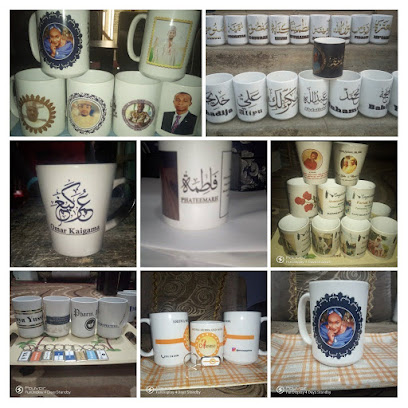
BAL Emporium By Bpowen Ventures
Explore BAL Emporium in Abuja for a fashionable shopping experience featuring clothing, bags, shoes, and accessories that reflect your unique style.
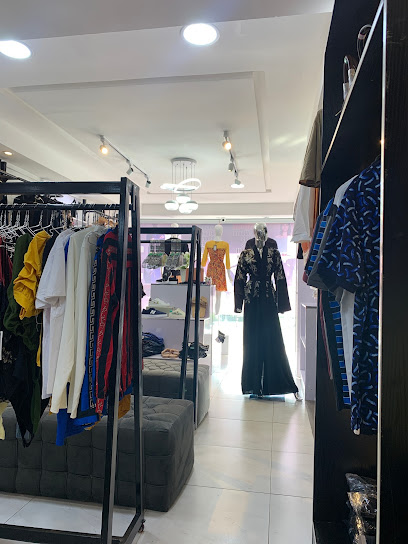
DY unique closet
Explore contemporary men's fashion at DY Unique Closet in Abuja's Studio 24 Mall, where style meets comfort in a unique shopping experience.
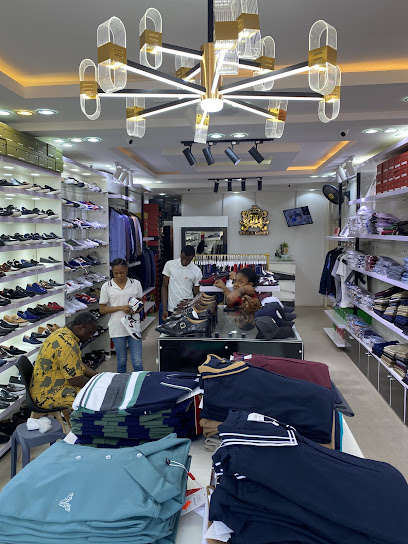
Abuja Variety Store
Explore Abuja Variety Store, your ultimate destination for unique gifts and home decor that reflect Nigeria's vibrant culture.
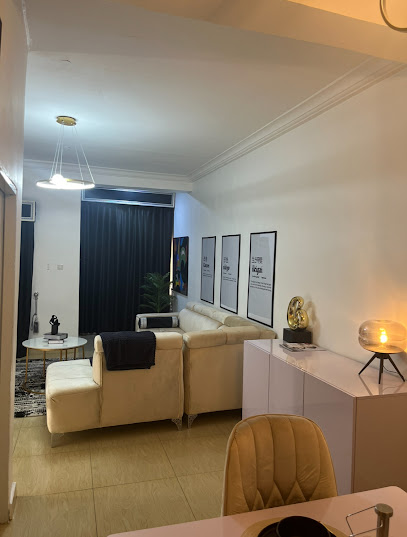
Unique Global Stores and Supermarkets
Discover a vibrant shopping destination in Abuja offering everything from groceries to electronics, perfect for all your shopping needs.
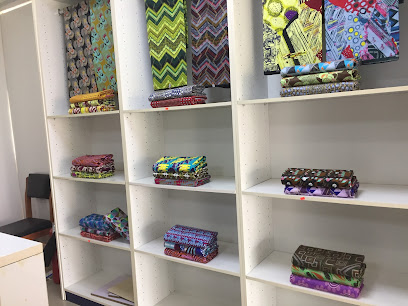
Shop Ize store
Explore unique fashion at Shop Ize, a clothing store offering local designs and stylish selections for every traveler.

East Square Boutique
Explore East Square Boutique in Abuja for exclusive fashion finds and unique accessories that elevate your style.

Essential bars & hidden hideouts
Beer Barn Abuja
Discover a lively lounge in Abuja, Beer Barn, where great drinks, delicious food, and vibrant entertainment come together in a perfect blend.
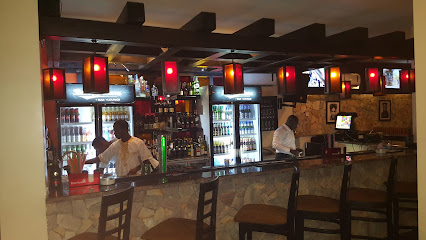
The Traffic Bar & Restaurant
Experience culinary excellence at The Traffic Bar & Restaurant in Abuja, where vibrant atmosphere and gourmet dishes await every visitor.
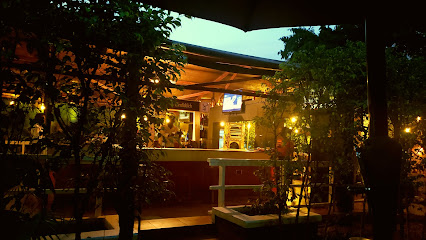
Sofa Lounge
Discover Abuja's lively nightlife at Sofa Lounge, a premier night club and karaoke bar filled with energy, entertainment, and delicious cuisine.
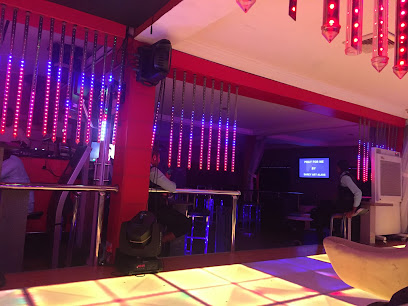
Zodara
Experience Abuja's vibrant nightlife at Zodara, a stylish cocktail bar known for its innovative drinks and lively atmosphere.
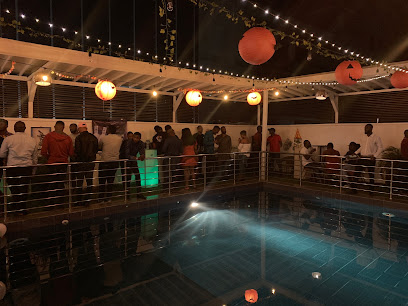
Kryxtal Lounge and Bar
Discover the dynamic nightlife of Abuja at Kryxtal Lounge and Bar, where great drinks and live music create an unforgettable experience.
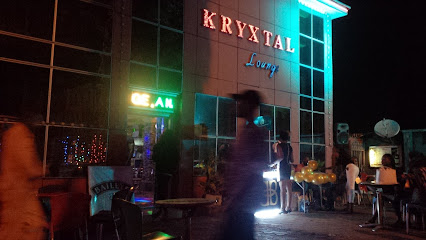
Tokyo Nightlife
Discover the vibrant Tokyo Nightlife in Abuja, where delicious breakfasts and a lively lounge atmosphere blend seamlessly for an unforgettable experience.
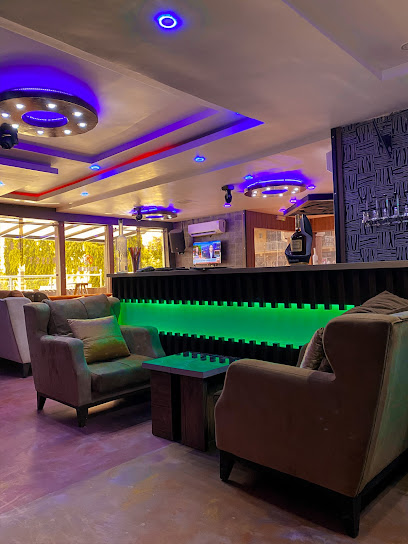
Emerald Park, Bush Bar
Experience the vibrant nightlife at Emerald Park, Bush Bar in Abuja, where great drinks meet unforgettable moments in a lively setting.
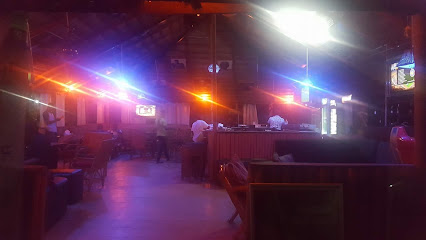
Beirut Lounge
Experience the vibrant flavors of Lebanon at Beirut Lounge in Abuja, where exquisite cuisine meets a lively nightlife atmosphere.
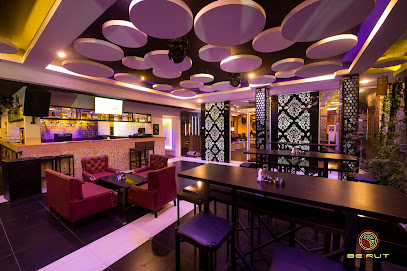
Barracuda Resto Pub
Discover the vibrant atmosphere of Barracuda Resto Pub in Abuja, where delicious food meets an exciting nightlife experience.
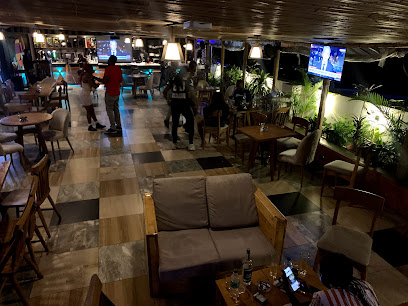
SEQUENCE LOUNGE
Experience the perfect blend of local and international cuisine at Sequence Lounge, a vibrant bar and restaurant in Abuja's Maitama neighborhood.
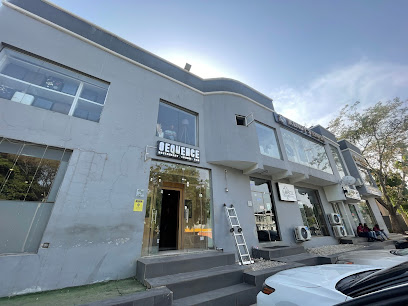
Blue Flame Lounge and Restaurant
Discover the lively essence of Abuja at Blue Flame Lounge and Restaurant, where local flavors meet vibrant nightlife in a stylish setting.
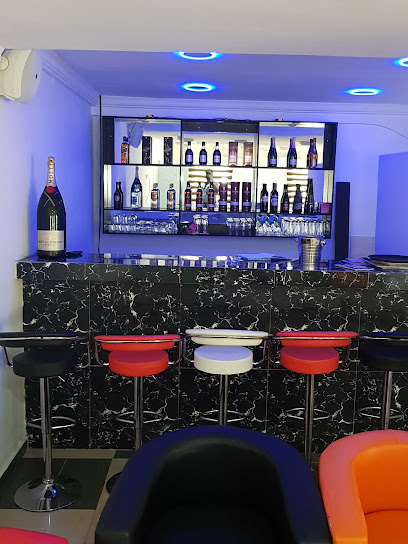
Cubana Bush Bar
Cubana Bush Bar: Dive into Abuja's nightlife with great food, drinks, and vibrant entertainment in a lively atmosphere.
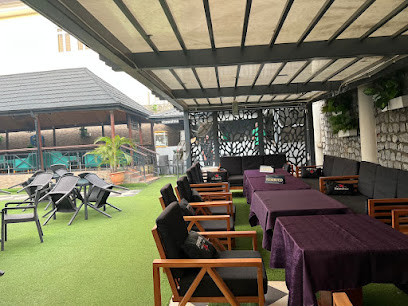
SPACE LOUNGE & BAR
Experience Abuja's vibrant nightlife at SPACE LOUNGE & BAR, where exquisite wines and a lively atmosphere await you.
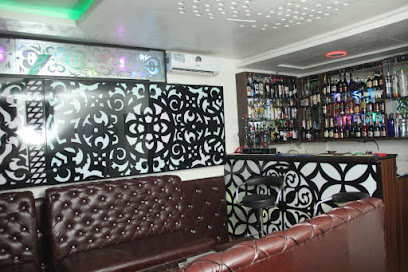
The Barrel by Red Gourmet
Experience Abuja's vibrant nightlife at The Barrel by Red Gourmet, where a rich selection of drinks meets a lively social atmosphere.
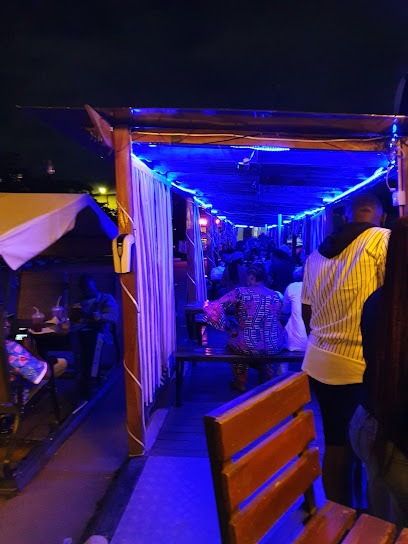
Local Phrases
-
- HelloSannu
[sahn-noo] - GoodbyeSai anjima
[sigh ahn-jee-mah] - YesEh
[eh] - NoA'a
[ah-ah] - Please/You're welcomeDa so
[dah soh] - Thank youNa gode
[nah goh-deh] - Excuse me/SorrySamu da sauki
[sah-moo dah sah-kee] - How are you?Yaya dai?
[yah-yah dye] - Fine. And you?Yaya. Kuma kake?
[yah-yah. koo-mah kah-kay] - Do you speak English?Kana son magana da Turanci?
[kah-nah sohn mah-gah-nah dah too-rahn-chee] - I don't understandBa na fahimci
[bah nah fah-heem-chee]
- HelloSannu
-
- I'd like to see the menu, pleaseIna son dubawa na bidiyo, don Allah
[ee-nah sohn doo-bah-wah nah bee-dee-yoh, dohn ah-lah] - I don't eat meatBa na ci abinci
[bah nah chee ah-been-chee] - Cheers!A karshe!
[ah kahr-shay] - I would like to pay, pleaseIna son kudi, don Allah
[ee-nah sohn koo-dee, dohn ah-lah]
- I'd like to see the menu, pleaseIna son dubawa na bidiyo, don Allah
-
- Help!Taimaka!
[tie-mah-kah] - Go away!Zuba!
[zoo-bah] - Call the Police!Kira bakin kai!
[kee-rah bah-keen kah-ee] - Call a doctor!Kira likita!
[kee-rah lee-kee-tah] - I'm lostNa yi wani
[nah yee wah-nee] - I'm illNa yi lafiya
[nah yee lah-fee-yah]
- Help!Taimaka!
-
- I'd like to buy...Ina so na siya...
[ee-nah soh nah see-yah] - I'm just lookingNa zaba nake
[nah zah-bah nah-kay] - How much is it?Shi ne yadda kake?
[shee nay yah-dah kah-kay] - That's too expensiveWannan ya fi kudi
[wahn-nahn yah fee koo-dee] - Can you lower the price?Zaka bata kudi?
[zah-kah bah-tah koo-dee]
- I'd like to buy...Ina so na siya...
-
- What time is it?Me yake da sa'a?
[may yah-kay dah sah-ah] - It's one o'clockYa sa'a daya
[yah sah-ah dah-yah] - Half past (10)Da rabi (goma)
[dah rah-bee goh-mah] - MorningRana
[rah-nah] - AfternoonRana
[rah-nah] - EveningRana
[rah-nah] - YesterdayJibi
[jee-bee] - TodayYau
[yow] - TomorrowGobe
[goh-bay] - 1Daya
[dah-yah] - 2Biyu
[bee-yoo] - 3Uku
[oo-koo] - 4Hudu
[hoo-doo] - 5Biɗi
[bee-dee] - 6Shida
[shee-dah] - 7Bakwai
[bah-kwai] - 8Takwas
[tah-kwahs] - 9Tara
[tah-rah] - 10Goma
[goh-mah]
- What time is it?Me yake da sa'a?
-
- Where's a/the...?Ina...
[ee-nah] - What's the address?Me sunan...
[may soo-nahn] - Can you show me (on the map)?Zaka nuna min (a cikin rubutu)?
[zah-kah noo-nah meen (ah chee-keen roo-boo-too)] - When's the next (bus)?Me yake zaɓi na gaba?
[may yah-kay zah-bee nah gah-bah] - A ticket (to ....)Katin tikit (zuwa ....)
[kah-teen tee-keet (zoo-wah)]
- Where's a/the...?Ina...
History of Abuja
-
Abuja's history dates back centuries, with the area initially inhabited by various ethnic groups including the Gwari, Koro, and Gade peoples. These groups lived in small, scattered settlements and engaged in farming, hunting, and trade. The region's strategic location made it a melting pot of cultures and an important trading hub.
-
The city of Abuja was formally established in the 1980s as a planned capital city for Nigeria. The decision to move the capital from Lagos to Abuja was made in 1976 by the military government, led by General Murtala Mohammed, to address issues of congestion and ethnic imbalance. The new capital was intended to be centrally located and neutral, reflecting Nigeria's diversity and unity.
-
The construction of Abuja began in earnest in the early 1980s under the supervision of the Federal Capital Development Authority (FCDA). The master plan, designed by the International Planning Associates (IPA), aimed to create a modern city with well-organized sectors, efficient transportation networks, and green spaces. The city was officially declared Nigeria's capital on December 12, 1991.
-
Since becoming the capital, Abuja has experienced rapid economic growth and urbanization. The city's economy is driven by government administration, real estate, construction, and services. Landmark projects such as the Abuja National Mosque, Aso Rock Presidential Villa, and the Nigerian National Assembly complex symbolize the city's modernity and importance.
-
Despite its modern appearance, Abuja retains a rich cultural heritage. The city hosts several traditional festivals, including the annual Gwari Day, which celebrates the culture and history of the Gwari people with music, dance, and traditional ceremonies. The city is also home to the National Cultural Institute and various galleries that showcase Nigerian art and culture.
-
Abuja is known for its scenic landscapes, including rolling hills, lush vegetation, and striking rock formations such as Aso Rock and Zuma Rock. These natural features are not only visually stunning but also hold cultural and historical significance for the indigenous peoples of the region. The city's parks and gardens offer residents and visitors serene environments to relax and enjoy nature.
-
Abuja is a significant diplomatic center, hosting numerous foreign embassies, international organizations, and diplomatic missions. The city's role as Nigeria's political and administrative heart makes it a hub for international relations and diplomacy in West Africa. Major conferences and summits are frequently held in Abuja, further enhancing its global profile.
Abuja Essentials
-
Abuja is served by Nnamdi Azikiwe International Airport (ABV), located approximately 40 kilometers from the city center. Several international airlines operate flights to and from Abuja, connecting it to major cities around the world. From the airport, you can take a taxi or use ride-hailing services to reach your accommodation. Alternatively, some hotels offer shuttle services for their guests.
-
Abuja has a range of transportation options including taxis, ride-hailing services like Uber and Bolt, and public buses. The city’s bus rapid transit (BRT) system is an affordable option for getting around. Car rentals are also available but driving can be challenging due to traffic and road conditions. For short distances, motorbike taxis known as 'okadas' are commonly used.
-
The official currency in Nigeria is the Nigerian Naira (NGN). Credit and debit cards are widely accepted in hotels, restaurants, and shopping centers, but it is advisable to carry some cash for smaller transactions, street vendors, and in more remote areas. ATMs are available throughout the city, and most banks offer currency exchange services.
-
Abuja is generally considered safer than many other parts of Nigeria, but it is still important to take standard precautions. Avoid walking alone at night, especially in unfamiliar areas. Be cautious in crowded places to protect against pickpocketing. Neighborhoods such as Gwarinpa and Garki are generally safe, but areas like Nyanya and Mararaba have higher crime rates and should be avoided, especially after dark.
-
In case of emergency, dial 112 for immediate assistance. Major hospitals like National Hospital Abuja and Garki Hospital offer emergency medical services. For police assistance, contact the nearest police station or dial 911. It is highly recommended to have travel insurance that covers medical emergencies. Pharmacies are readily available for minor health issues.
-
Fashion: Do dress modestly, especially when visiting religious sites. Avoid wearing overly revealing clothing. Religion: Do respect local customs and traditions. It is polite to greet people with 'Good morning' or 'Good afternoon'. Public Transport: Do be respectful and avoid loud conversations. Be cautious with your belongings. Greetings: Do greet people with a handshake, and use the right hand when giving or receiving items. Eating & Drinking: Do try local dishes and accept food offerings politely. Avoid eating or drinking in public during the Ramadan fasting period.
-
To experience Abuja like a local, visit Jabi Lake Mall for shopping and leisure activities. Explore local markets such as Wuse Market for a variety of goods and traditional items. Enjoy local cuisine at Bukka restaurants or try street food like suya. Engage with locals who are known for their hospitality and willingness to share cultural insights. Don’t miss the Millennium Park for a relaxing day out, or the Abuja Arts and Crafts Village for unique souvenirs.
Trending Landmark in Abuja
-
Ceddi Plaza
-
Silverbird Cinemas Abuja
-
Magic Land
-
Abuja National Mosque
-
Millennium Park
-
Eagle Square
-
Old Parade Ground
-
National Childrens Park & Zoo Abuja
-
BMT African Garden
-
OJUELEGBA AMALAPOINT GARKI
-
Nkoyo
-
Maitama Amusement Park
-
Central Park
-
Abuja international conference center
-
Shehu Musa Yar'Adua Foundation
Nearby Cities to Abuja
-
Things To Do in Kaduna
-
Things To Do in Jos
-
Things To Do in Enugu
-
Things To Do in Asaba
-
Things To Do in Onitsha
-
Things To Do in Kano
-
Things To Do in Benin City
-
Things To Do in Owerri
-
Things To Do in Mamfe
-
Things To Do in Ibadan
-
Things To Do in Warri
-
Things To Do in Uyo
-
Things To Do in Bamenda
-
Things To Do in Calabar
-
Things To Do in Port Harcourt













